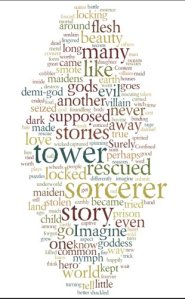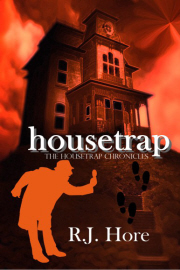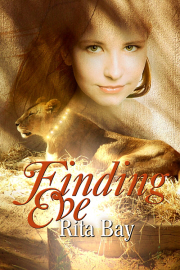This week’s guest post is with Celia Breslin, debut author of Haven, which will be released by Champagne Books July 2.
Hello everyone!
I’m delighted to be here today to share some fun info about my upcoming release, Haven, Book 1 in the Tranquilli Bloodline Series. Thanks to L. T. Getty for the great questions. And so we begin…
1) So – Paranormal Romance, Urban Fantasy, or Contemporary Horror – how would you classify Haven?
Haven is 100% urban fantasy romance.
Urban fantasy, by definition, takes place in an urban setting, often occurs in present day, contains supernatural (fantasy) elements, of course, and is often written from the first person perspective.
Haven meets these criteria. The story is set in San Francisco in a world rife with preternatural creatures and the reader experiences the adventure from the heroine, Carina Tranquilli’s point of view.
But let’s not forget about the love. Haven is also a romance — she meets her destined soul mate and, thanks to Team Evil in hot pursuit, the two of them must fight hard for their relationship.
2) Why the title Haven?
Haven is literally the name of the dance club Carina owns in the Castro neighborhood of San Francisco. (sidebar: it’s a fictional bar — in our reality, there’s a bank on that corner).
But it’s more than that. Haven, defined, means “a place of safety or refuge.” This is one of the core themes of the book. How do you make a haven for yourself in the world, and, how far will you go to protect it?
Estranged from her three brothers, Carina creates a home for herself with her best friends. And with her bisexual friend and business partner Adrian, she builds a dance club in the Castro, a safe space where *everyone* – regardless of race, religion, sexual preference – is welcome.
Her sense of home and safety is threatened by the emergence of vampires in her life on both Teams Good and Evil.
3) Tell us a little bit about why you decided to write about vampires.
I didn’t so much decide to write about vampires as my Muse *demanded* I do so. LOL. Seriously, I’ve loved vampires since I was a kid watching Dark Shadows reruns on the telly. I think my muse would’ve mutinied if I didn’t write about them!
4) How are your vampires different from others – or are they? Are there any other mythological creatures running around, or is that hush hush until the book is out?
My vampires are undead, sensitive to sun and silver, possess a basic set of vamp-y skills including heightened senses and super strength. Some of the older vamps possess unique powers, too. As one of them puts it, “Gifted in life. Gifted in death.” For more info, you’ll have to read the story. *grins*
We also have witches on both Team Good and Team Evil, and one psychic. The latter happens to be Carina’s BFF, Faith. The two women met and bonded at boarding school when they were teens.
6) From your earlier interview with me in January, you said you wrote a prequel to Haven – how’s that going?
I did indeed write a prequel to Haven, starring Carina’s mentor and my favorite vampire, Jonas. It’s called The Vampire Code, and it will release this October from Champagne Books.
Here’s the elevator pitch:
When a naughty newbie vampire injures Carina, it’s left to her mentor and protector Jonas The Executioner to punish the offender and his maker. Code Breakers beware.
A big *Thank You* to L.T. and the entire Worlds of the Imagination posse for having me over for a visit.
\
Dear Commenters:
I’m on vacation in the mountains right now, where the trees are plentiful but the wi-fi and phone service scarce. If the tech gods smile upon me, I’ll check in on Friday and chat with you. If they reject my prayers, I’ll see you all on Saturday. 🙂
Cheers!
Celia
San Francisco nightclub owner Carina Tranquilli works hard, plays hard, and never allows the death of her parents and her twelve-year memory gap to get her down. But her life takes a left turn when a witch attacks her on her twenty-fifth birthday.
Three hauntingly familiar vampires emerge to reveal she possesses a latent power. To protect her from their enemies, they admit to wiping her memories clean and abandoning her as a child, but now they need her help. As she struggles to evade her new protectors and even newer enemies, she meets Alexander, an enigmatic, undead musician. Insta-lust flares, leaving her wanting more.
With evil’s minions hounding her every move, and everything she thought she knew turned on its head, Carina must harness her burgeoning power, unravel her vampire family’s web of deceit, and fight to have a love life…without getting killed in the process.
Excerpt:
Turn around.
I froze, my moment of weakness chased away by a jolt of adrenaline. I resisted Adrian’s pull. “Did you hear that?”
“Hear what?”
Silence.
“Nothing, I guess.” A wave of energy rolled into me, curled itself possessively around my body, and gave me one hell of a head rush. “Oh, wow.” I bit my lip, bracing against reaction.
Adrian tightened his grip on my waist. “Rina?”
Mark and Ren stalked over, faces grim.
“Did—? Do you—?” My mouth was so dry I could barely speak. “Do you guys feel that?”
Adrian squeezed, capturing my wandering attention, concern etched in the stern set of his jaw. “Feel what? What’s wrong?”
I started to tell them the Invisible Man hugged me against an electrified fence, but a second wave of energy bowled into me, making me tingle from head to toe. The sensation walked the line between pleasure and pain. A moan escaped me.
Mark took me from Adrian. “That’s it. We’re out of here.” He tried to pick me up, but I shook my head. Bad idea. Dizziness took the hall, and me, for a little spin.
Turn around. Turn. Around.
Was it a voice or instinct urging me on? Either way, the desire proved irresistible. I pulled away from Mark, pivoted, and forgot how to breathe.
The electric energy pulled back. The dizziness abated. All extraneous noise and people drained out of my perception until there was only Him.
Tall, fit, and bad-boy handsome with skin like pale honey, his thick, walnut brown hair hung tousled in a sexy, I-just-got-out-of-bed way. A hip, black, button-down shirt accentuated a sculpted upper body before it tucked into slacks painted on long, lean legs. The whole package made my mouth water.
Hot. Yummy. Totally my type.
“Who are you?” I whispered.
His mouth twitched in a hint of a smile as if he heard me—impossible given the distance between us. Heat spread, loosening my muscles, and my pulse sped up. Nerves. What’s wrong with me? Guys never made me nervous, not even gorgeous ones.
I nibbled my lower lip, mind racing to make sense of my reaction. His gaze tracked the movement and then slid back up. The heat from his stare hit me full force, driving a shaft of need through me. Energy rocked me again, a warm, electric breeze bathing my skin. My eyes widened in comprehension. The energy came from him.
To learn more, check out:














































